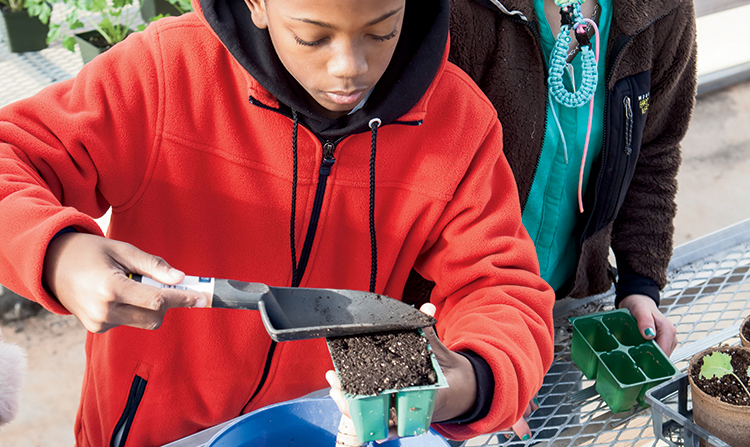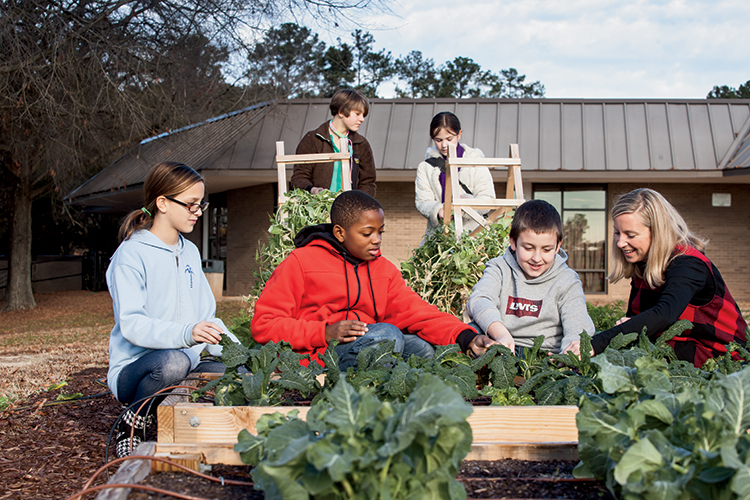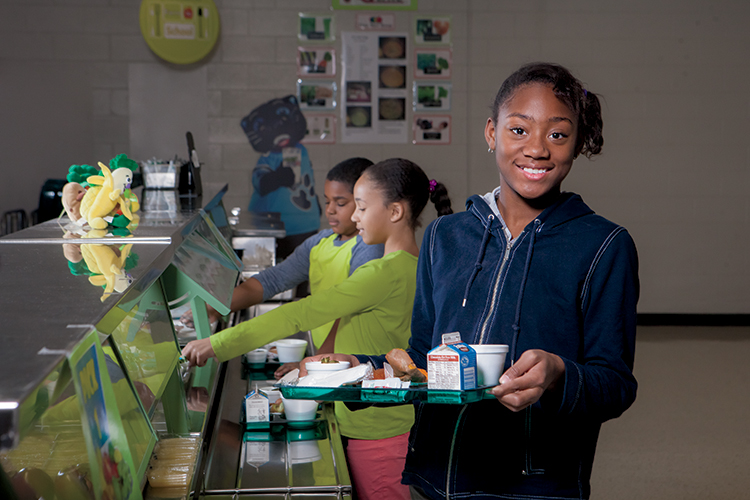Home > South Carolina > South Carolina Ag Education > South Carolina’s Farm Fresh Schools
South Carolina’s Farm Fresh Schools

Students at Lexington/Richland School District 5 taste kale and squash that they’ve grown from seed. The school cafeterias serve fresh foods from local farms and food distributors, and the students eat up the opportunities.
In fact, the twice-monthly servings of locally grown sweet potatoes rank as a favorite menu item among the 9,500 students who eat lunch daily.
“Our goal is to buy as much product as possible from local farmers to try to reduce the carbon footprint and support local farmers in the state,” says Todd Bedenbaugh, director of student nutrition for School District 5 of Lexington and Richland counties. “It’s a win-win for our economy, and it would be great if more districts would buy more local produce from farmers.”
District 5’s 21 schools represent some of the 226 schools across the state that have participated in Farm to School efforts since its inception, says Amy Weaver, statewide Farm to School coordinator for the South Carolina Department of Agriculture. Participating South Carolina schools in the 2011-12 school year directed more than $8 million of their food budgets to local food, according to the U.S. Department of Agriculture.
Farm to School puts anything from local strawberries and greens to poultry on school lunch trays, promotes healthy eating, and increases the number of farmers certified to sell to schools. The effort encourages schools to plant vegetable gardens and faculty to incorporate nutrition and agriculture education into the school curriculum. It also increases awareness of Certified South Carolina products to students, the state’s future consumers.

A Growing Effort
During the 2014-15 school year, the state selected more than 60 schools and preschools as Farm to School sites. The program’s resources provide the schools with opportunities for farm field trips, gardens and even culinary training for cafeteria staff to incorporate local foods on menus, Weaver says. District 5 uniquely earned a nearly $100,000 USDA Farm to School grant. The federal funds established four raised garden beds at six of its schools, all of which were bult and installed by the Lexington-Richland 5 FFA chapter. These projects brought new life to an idle greenhouse and put student-grown tomatoes on the school’s salad bar.
“We’re excited to see all of those things take place,” Bedenbaugh says.
The Farm to School Program is transforming into a Farm to Institution program. The next phase targets workplaces, hospitals and other institutions that could serve South Carolina products, Weaver says. The program already migrated into the Department of Juvenile Justice system and is expanding the District 5 poultry pilot program with 42 schools in 2014-15. The Farm to Preschool program that started in 2012 also encourages locally sourced foods.
“The program is great in terms of its fit with the local food movement that is growing across the state,” Weaver says. “Agribusiness is the top industry in the state and the South Carolina Farm to Institution program is committed to farmers across the state and helping them grow their markets, while providing residents with fresh, local produce.”

Efforts on USC Campus
Likewise, the Healthy Carolina Farmers Market on the campus of the University of South Carolina encourages good eating habits and local food awareness for students, staff, faculty and the community.
The market represents a collaboration between the agriculture department and several other USC departments and programs. The market offers local produce and products to students, faculty, staff and the surrounding community and emphasizes sustainable agriculture in the region.
USC’s first lady Patricia Moore-Pastides participates, as well. An accomplished cook, cookbook author and public health professional, she grows an organic vegetable garden for university events and the Healthy Carolina Farmers Market.



